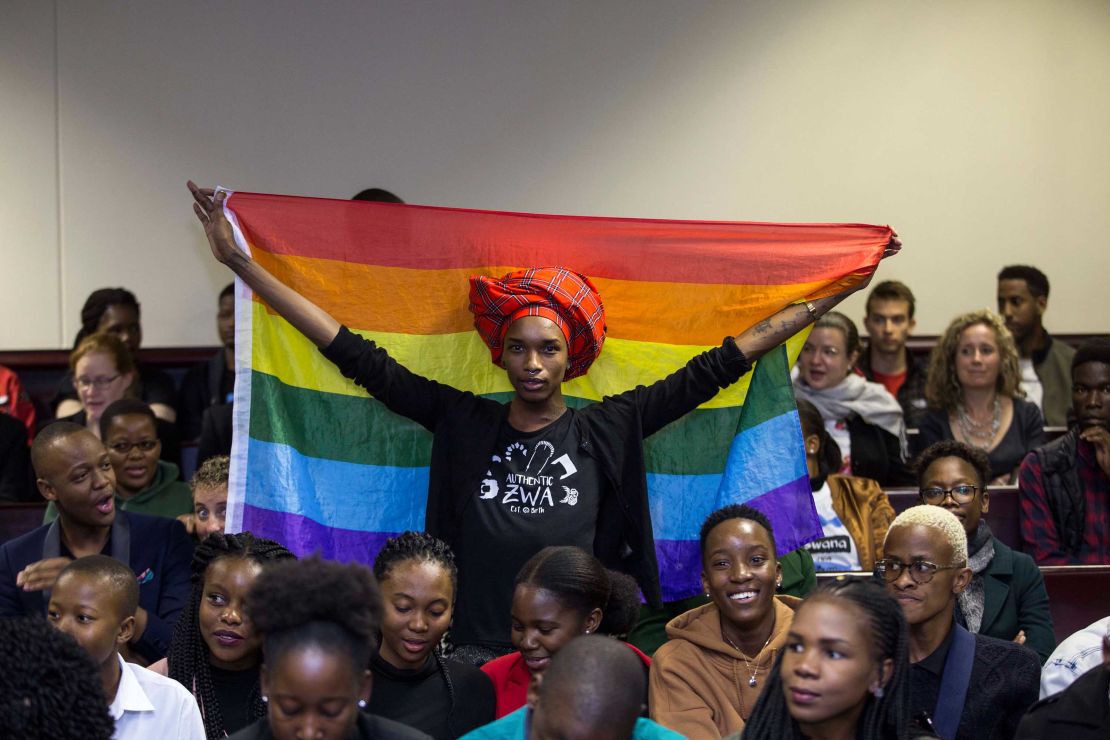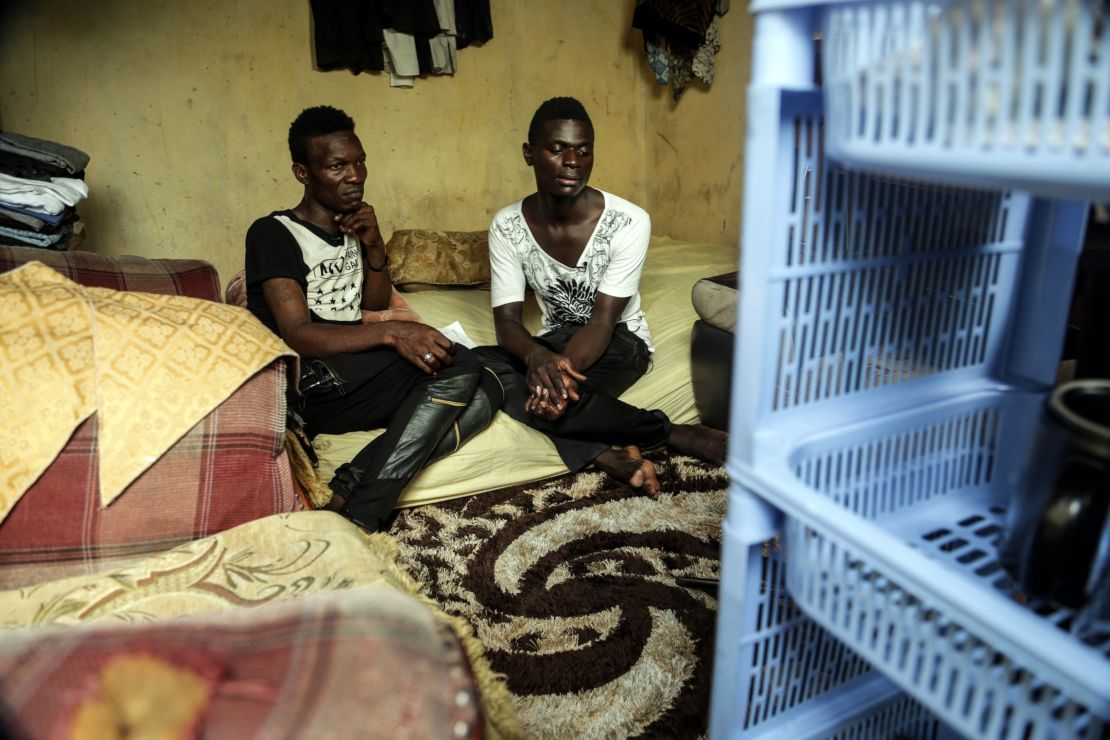It was Pride Month no less.
On June 11, high court judges in Gaborone struck down colonial-era sodomy laws from the rule books. The judgment was comprehensive, and LGBTQ activists in Botswana were overjoyed.
It was a significant win in a protracted fight for equality. For a moment, progress seemed inevitable, but I’ve found that victories like this one are often followed by crushing disappointments.

And so, a few weeks ago the attorney general in Botswana, Abraham Keetshabe, announced he would appeal the LGBTQ ruling.
Keetshabe told me that his main argument was legal – but it was also moral.
“Let me make it very clear, the predominant majority of the people in this country believe that the laws were not only constitutional, but appropriate, representing the values, the norms and the culture of this country,” he said. “Batswana are in shock.”
Anna Mmolai-Chalmers, the Motswana founder of prominent LGBTQ rights group LEGABIBO, was deeply disappointed by Keetshabe’s move. She also doesn’t buy the culture argument.
“Young people are supportive and understanding, but older people living in rural areas find it difficult. I differ with the attorney general on this,” she said.
Discriminatory policies
The median age across Africa is under 20. Still, that hasn’t stopped the much older ruling class from helping maintain discriminatory policies in other countries.
Earlier this year, a Kenyan court refused to repeal similar anti-sodomy laws – a big blow for an LGBTQ community that has seen a lot more social acceptance in recent years.
South Africa famously enshrined gay rights in its 1996 constitution. And, in recent years, there has been a trickle of victories over these colonial-era laws. And then, there’s Uganda.
Nearly 10 years ago, I sat down with a young newspaper editor called Giles Muhame, who had just published a tabloid with the headline “100 pictures of Uganda’s top homos leak.” The paper featured a gallery of Ugandans they claimed were gay and called for them to be hanged.
That Rolling Stone newspaper – no connection to the iconic US publication – was instantly notorious.
For a time, editor Muhame enjoyed the notoriety.
I looked over that interview again recently. And was struck by his calm, cold, hatred.
“We thought by publishing that story, the police would investigate them, prosecute them, and hang them,” he told me at the time.

I got hold of Muhame again this week, but he didn’t want to discuss that period.
“We are now a bit more professional and cautious,” he said.
One of the people featured in that October 2010 Rolling Stone edition was a slight, bespectacled, teacher called David Kato. He described himself as Uganda’s first openly gay man. After publication, he went into hiding for a time.
Soon after, I met Kato on a dirt street after a complicated series of instructions over text message. Wearing an orange polo and black pants, he spoke with a nervous energy – he feared for his life.
A few months later, Kato was bludgeoned to death with a hammer.
The circumstances were murky, but his family and gay rights activists insist it was because of his advocacy.
Uganda’s infamous ‘anti-gay’ bill
Around the same time, Uganda gained notoriety internationally for the infamous “anti-gay” bill. Brought forward by a member of Parliament, it initially called for the death penalty for certain homosexual acts and perpetuated the myth that the LGBTQ community was recruiting young people to become gay.
The maximum penalty was eventually changed to life in prison.
Despite the aid cuts and bad press, Ugandan President Yoweri Museveni signed the bill into law in 2014. Then, in what was seen as a huge victory for gay Ugandans, it was struck down by the courts on a technicality.
As often happens, the story faded from view. Now, away from the international spotlight, a member of Parliament wants to reintroduce the bill.
“It is rampant, the gays are causing a lot of damage in my country,” Rev. Simon Lokodo, the country’s ethics and integrity minister, told me last week.
Lokodo is one of the chief voices behind the new bill.
“There are a few changes, like in the new one the death penalty is not there. Instead it is replaced with a life sentence,” he said.
If they do successfully bring the anti-gay bill back to Parliament, will it cause the same international backlash as in 2019? Frank Mugisha, a well-known Ugandan activist, isn’t so sure.
“They feel it is a good time to bring up anti-gay legislation in Uganda now, because they feel they have got more support from global conservatives than they had a few years ago,” he said.
He sees conservative movements across the globe that have risen in recent years as part of the challenge.
In Uganda as elsewhere, critics of LGBTQ rights often say that homosexuality is “unAfrican,” but there has been a well-documented effort by foreign evangelical groups over the years to influence the debate.
By the same token, activists admit that much of the funding for LGBTQ NGO groups comes from overseas donors.
In Uganda, laws are only part of the problem.
“Trust me, nobody respects the current laws anyways,” says Jackson Mukasa, who is known to friends as Rihanna.
“The government won’t let us hold pride. Our meetings are always raided. I was arrested again recently,” Mukasa said by phone.

A few years ago, Mukasa and Kim Mukisa were arrested after a mob of neighbors banged down their door.
“We heard people screaming, ‘the gays are here! The gays are here!’ We expected to be killed,” recalls Mukasa.
They were charged with engaging in sex acts “against the order of nature.”
Yes, the same type of colonial era laws that activists in Kenya and Botswana are trying to squash.
The pair went on trial, and eventually the charges against them were dropped because of lack of evidence.
Mukasa and Mugisha both say that in the past five years, the space for LGBTQ Ugandans has shrunk.
Mukasa started a small NGO earlier this year to help LGBTQ people, especially transgender women in prison in Uganda, despite the considerable risks involved. Funding is a constant problem, Mukasa says.
When I asked if the risks are worth it, Mukasa chuckled.
“I sometimes feel that way. But you have to be proud and you need to be constant. There are people in prison. Their hopes are with me. If I lose hope, who will they have? How will they gain that hope?”
No, progress is not inevitable.



